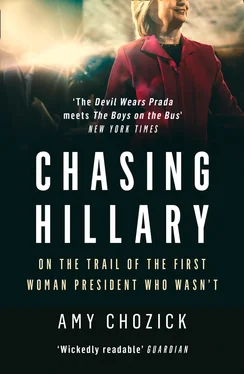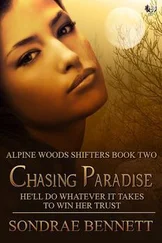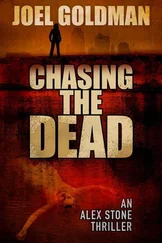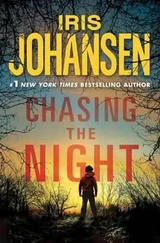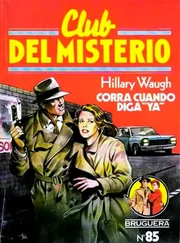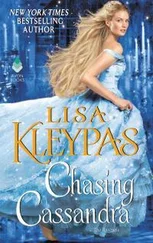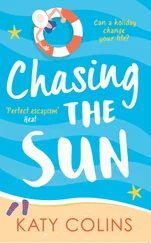The only person on the Hillary campaign I really got to know was Jamie, the dutiful press wrangler who remained catatonically upbeat even after four hours on a bus with reporters asking her nonstop questions about when we’d get lunch and whether we’d get our Marriott points and “Jamie, can you pass the granola bars back here? Not those, the peanut butter ones …” and “Jamie, I think I left my power cord in Sioux City …” and “Jamie, how long ’til we get there?” She was so smiley and obedient that behind her back The Guys called her the Golden Retriever.
Jamie led us into my first Hillary town hall, held in the Shenandoah fire station. Tom Petty’s “American Girl” blasted from the speakers. I soaked up the Americana. There were homemade pies set up on folding tables against corrugated metal walls and red fire trucks and old men in patch-covered garrison caps. Their wives wore Christmas sweaters with puffy-paint Rudolphs and tiny flickering Christmas lights. Hillary appeared at the front of the room, and before she even said anything, I stood up from my seat and clapped. That’s when I felt Jason George of the Chicago Tribune tugging at the right side of my parka.
“Dude! Dude!” I’d just met Jason that day, but he had the concerned expression of an old friend saving me from swallowing a handful of sedatives. “What the hell are you doing? You can’t do that.”
I looked at the rest of the press, all staring stone-faced at their laptops, too focused on their screens to notice my faux pas. I quickly sat back down in my chair.
8
“Taking Back America”
IOWA, 2007
Writing for the Wall Street Journal with the nation on the cusp of the 2008 financial crisis came with some built-in advantages. Although I still dressed like a Japanese teenager—meaning I wore everything in my closet all at once, jeans under dresses, under blazers, over cardigans until I was one chubby gaijin layer—Hillary, and those on her campaign staff, assumed I was policy minded and serious. Even other reporters would frequently turn to me to ask what Hillary meant after she’d shout at rallies “ Mortgage-backed securities! ” and “ Sub-prime lending! ” All of this despite the fact that I couldn’t tell you what equity derivatives were. “No one knows what derivatives are, that’s the whole point,” the Journal ’s finance editor once assured me.
The candidates actually wanted to do interviews with me. I got a forty-five-minute sit-down with Hillary, my longest ever. She predicted the housing crisis, warned that the US could slip into a Japanese-style “malaise” (something I did know about), and criticized NAFTA, the trade deal her husband signed into law in 1993 that would dog her through both of her presidential campaigns.
“There have been some very positive results of trade [but] … there is still too much of the benefits of trade and the global capital markets favoring elites and multinational companies in a way that is not spreading prosperity,” she told me and my Journal colleague, the economics writer, Bob Davis. Bob and Hillary knew what derivatives were.
A couple of weeks before the caucuses, the Journal ’s politics editor Jake Schlesinger called. “Edwards wants to sit down for an in-depth interview about the economy after his rally today. Can you get to Vinton by two p.m.?” Jake asked.
I hesitated. I’d been in Iowa long enough to know Vinton was in the Cedar Rapids metropolitan area (if you could call 255,000 people a metro area), a two-hour drive from Des Moines on a good day. But on that day, a blizzard had parked over the state making driving conditions perilous for locals and a particular death trap for a transplant New Yorker driving a rented Hyundai Elantra with no snow tires.
“This would be exclusive. He asked specifically for the Journal ,” Jake said, in a tone neither pushy nor impolite but that told me I didn’t have a choice.
“Leaving now,” I said, and started to pull on my army-green parka and snow boots.
The Edwards campaign was in crisis mode after the National Enquirer ’s JOHN EDWARDS LOVE CHILD SCANDAL! story broke. We’d all been too polite to follow the story, maybe because Edwards’s wife Elizabeth had cancer or because we all thought ourselves above chasing the Enquirer or both. Still, for Hillary there exists an alternative route in the Rube Goldberg of why she will never become the FWP: The media runs with the Edwards baby-daddy scandal, causing him to drop out before the caucuses, allowing Hillary to pick up enough of his supporters to win Iowa, halting Obama’s momentum before it started, and allowing her to win the nomination and defeat John McCain.
Trucks skidded off the interstate. I could hardly see the road and felt my tires floating on a layer of ice and snow. By the time I arrived in the cafeteria of Vinton High, Edwards was finishing his tirade against the growing divide between the haves and the have-nots. I wouldn’t appreciate Edwards’s “Two Americas” and his populist pitch decrying inequality and global trade until 2016 when Bernie and Trump used an almost identical playbook. Edwards ended up an imperfect messenger, a slick millionaire trial lawyer with a love child. We know, we know, you’re the son of a millworker . But he was ahead of his time.
I found an empty seat next to the New York Times ’ Julie Bosman. Julie was the paper’s Edwards beat reporter until, as a Times editor liked to say, “Her horse didn’t just die. He got caught fucking Secretariat.” Edwards concluded his Vinton speech by pointing to our thinly populated press area.
“You see all those reporters in the back?” he said, in a gesture that felt like a game-show host breaking the fourth wall. A scattering of heads turned around. I met eyes with an older white man in denim overalls and a purple-and-gold SEIU button. “They’ll be writing ‘He said, she said,’ while we’re TAKING BACK AMERICA!”
He was even ahead of his time in shaming the elite media.
I approached Edwards backstage as his press secretary had instructed and extended my hand to shake his.
“Hi, Senator, I’m …”
Edwards glanced briefly at me and kept walking. “Just a second honey,” he said, flashing a palm at me in a halting motion. “I got an interview with the Wall Street Journal .”
“I am the Wall Street Journal ,” I said.
9
Leave Hillary Alone
WASHINGTON, DC, 2014
I knew Hillary was running again on a Monday afternoon in early May. She’d sent all The Guys, including Outsider Guy who avoided DC and had to fly cross-country, to attend the meeting, along with her closest aides. These included Cheryl Mills, the classy, elusive lawyer who’d defended the Clintons during impeachment and Benghazi and who knew how to drape a scarf in even the hottest State Department convoys to Senegal; Tina Flournoy, a former union leader and boxing aficionado from Georgia whose combination of tenacity and Southern charm made her uniquely qualified to hold the unenviable role of Bill Clinton’s chief of staff; and Huma Abedin, the elegant waif and tabloid fixture who’d worked for Hillary since she was a nineteen-year-old White House intern and George Washington University student.
Ever since I arrived in Iowa in 2007, I’d marveled at Huma the way women tend to marvel at impossibly thin, fashionable women. She was the only one (including Hillary) who didn’t gain at least ten pounds in 2008. It got so bad that by the Indiana primary, I saw Chelsea swat her mother’s hand away (“ Mom! ”) from a deep dish of chips and salsa. And I watched, hardly able to keep up in my bulky snow boots, as Huma glided alongside Hillary in stilettos during the Scranton St. Patrick’s Day parade. The press speculated about whether Huma had hooked up with one of The Guys who had a fiancée in New York, our very own soap opera unfolding on the plane. But on one flight toward the end of the primary, Huma introduced the ’08 traveling press to her new boyfriend—a promising young congressman from New York named Anthony Weiner.
Читать дальше
